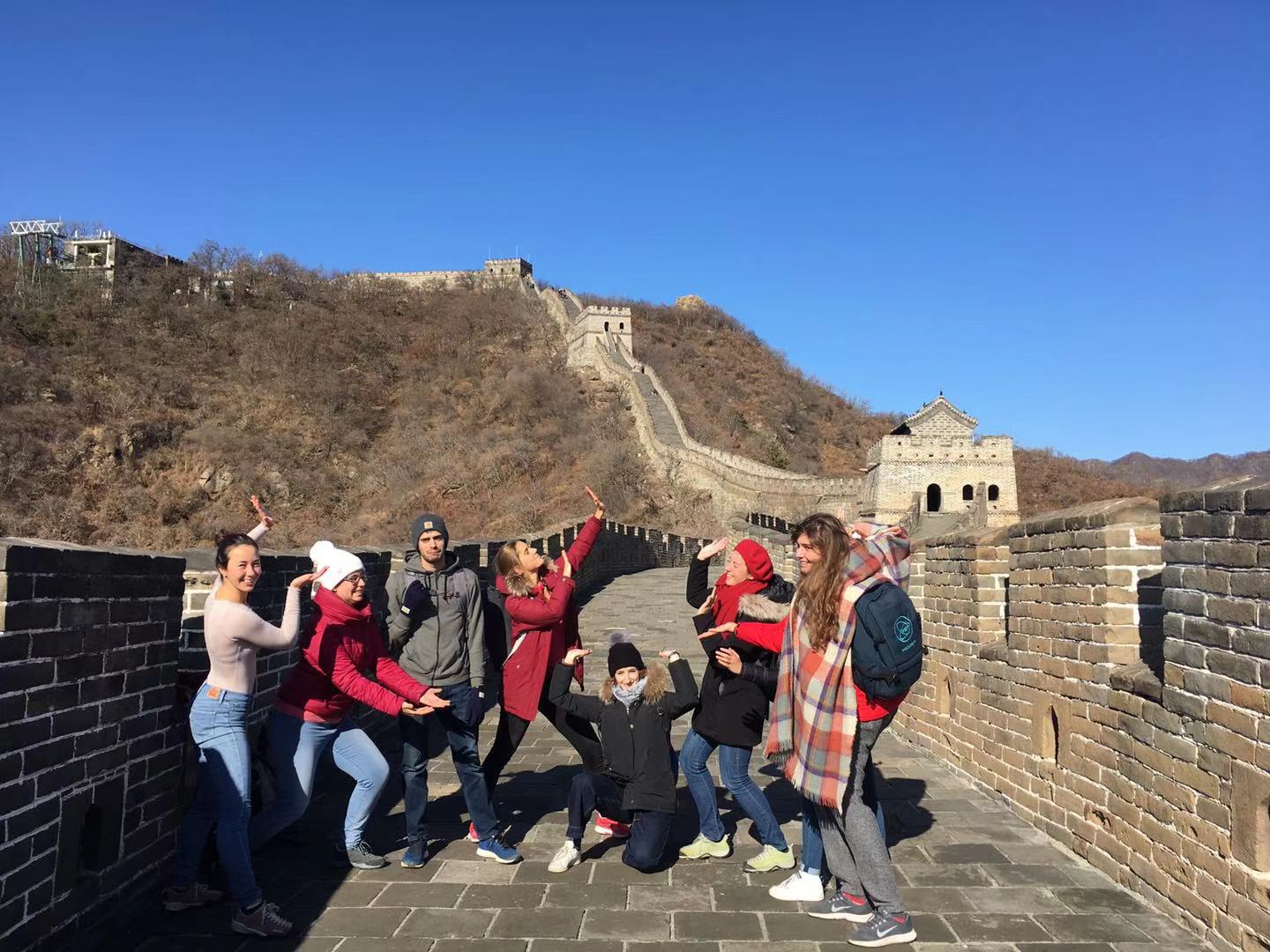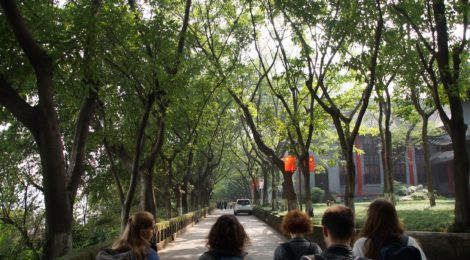
An Italian adventure in China
Thanks to Chongqing University and Galilei Institute, we had the amazing opportunity to spend a month in China, being mainly based at Chongqing. Our experience in Chongqing has meant a lot: for most of us, this was the first travel to China and the first long experience as a student out of Italy. We didn’t really know what to expect from this adventure, and, as soon as we arrived, we couldn’t have been happier to find a wonderful and fascinating reality.
Chongqing was nothing similar to the Italian cities or villages in which we have lived before: the University campus itself was huge compared to the dimension of Pisa. Moreover, we soon realised this was truly a Chinese full-immersion experience, as it was often hard to find someone who could speak English. Nonetheless, we found Chongqing extremely welcoming, not only because of the people we had the luck to meet at the University – who gave us many possibilities to learn something about the country and the subjects we are interested in from an academic point of view. In fact, in addition to the kindness from Galileo Galilei Institute’s staff, the University members and our teachers, we found ourselves really pleased by the courtesy people would show us in Chongqing while they saw us trying our best to make a sentence in Chinese.
However, this is only the first great impression we had in China. Every day some aspects of the country and its life would surprise us and enrich our travel. For these reasons, we are grateful every day, and we would like to thank Chongqing University and Galilei Institute for having us here. The best way to do that probably is describing you our experience in all its facets, trying to involve you in our travel adventure. So, let’s start our journey!
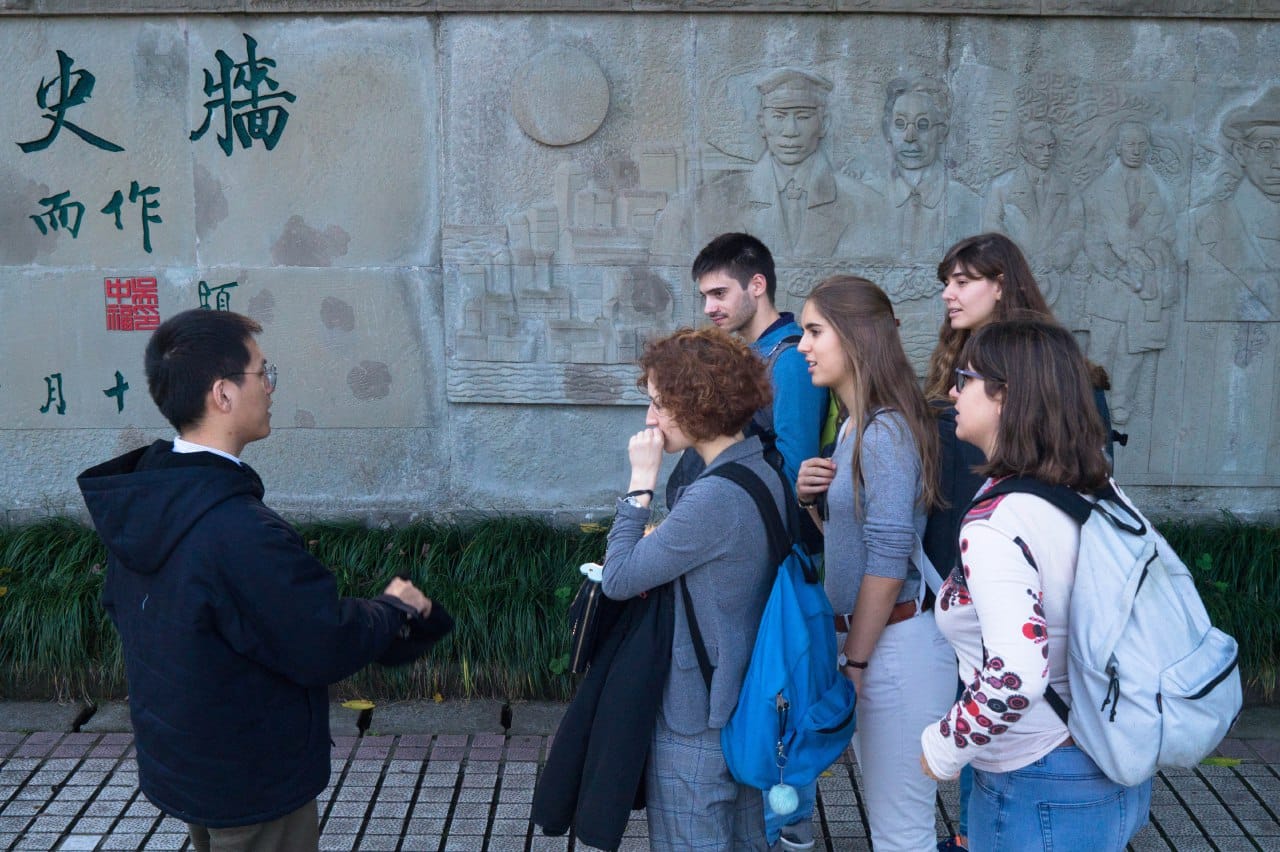
Trying to deal with the language barrier.
Every travel experience brings with it some challenges, be them small, everyday hitches or the need to adapt to a complex reality. However, when diving into a completely new environment, which you have very little prior experience or knowledge of, the most demanding of these challenges is perhaps communication.
At the very beginning, our attempts to understand and be understood by Chinese people always resulted in confused looks, questions remaining unanswered, and the bitterness of a curiosity frustrated by the “not being able to”.
For sure, the linguistic gap has played a major role: we had come to China with a very basic knowledge of Mandarin and – to our surprise – most people, both old and younger ones – could hardly speak a word of English, a language that we confidently thought we could rely on in case of need.
But, luckily, communication isn’t just made up of words. Living in constant, active contact with Chinese people has pushed us to try, day after day, to understand a bit more of their way of expressing themselves. Slowly, we got able to make sense of peculiar gestures, facial expressions, behaviors, and even to catch some known words once in a while.
This process was, of course, only partial: to fully comprehend a distant people’s way of expressing, knowing how its culture shapes its perception of reality and way of communication is necessary, and a lifetime wouldn’t be enough to.
Partial, and yet rewarding. We were motivated to get in the game, to put some effort into asking questions and understanding answers in Chinese, and sometimes even having simple conversations, using skills we had previously trained only during language classes.
Moreover, we got such a positive feedback from people around us. They usually showed at least as much interest in us as we did: walking in the streets, we received a lot of curious smiles, and were often asked for a photo, or for a few information about us. A proven sign that communication starts first and foremost in the openness towards the other.
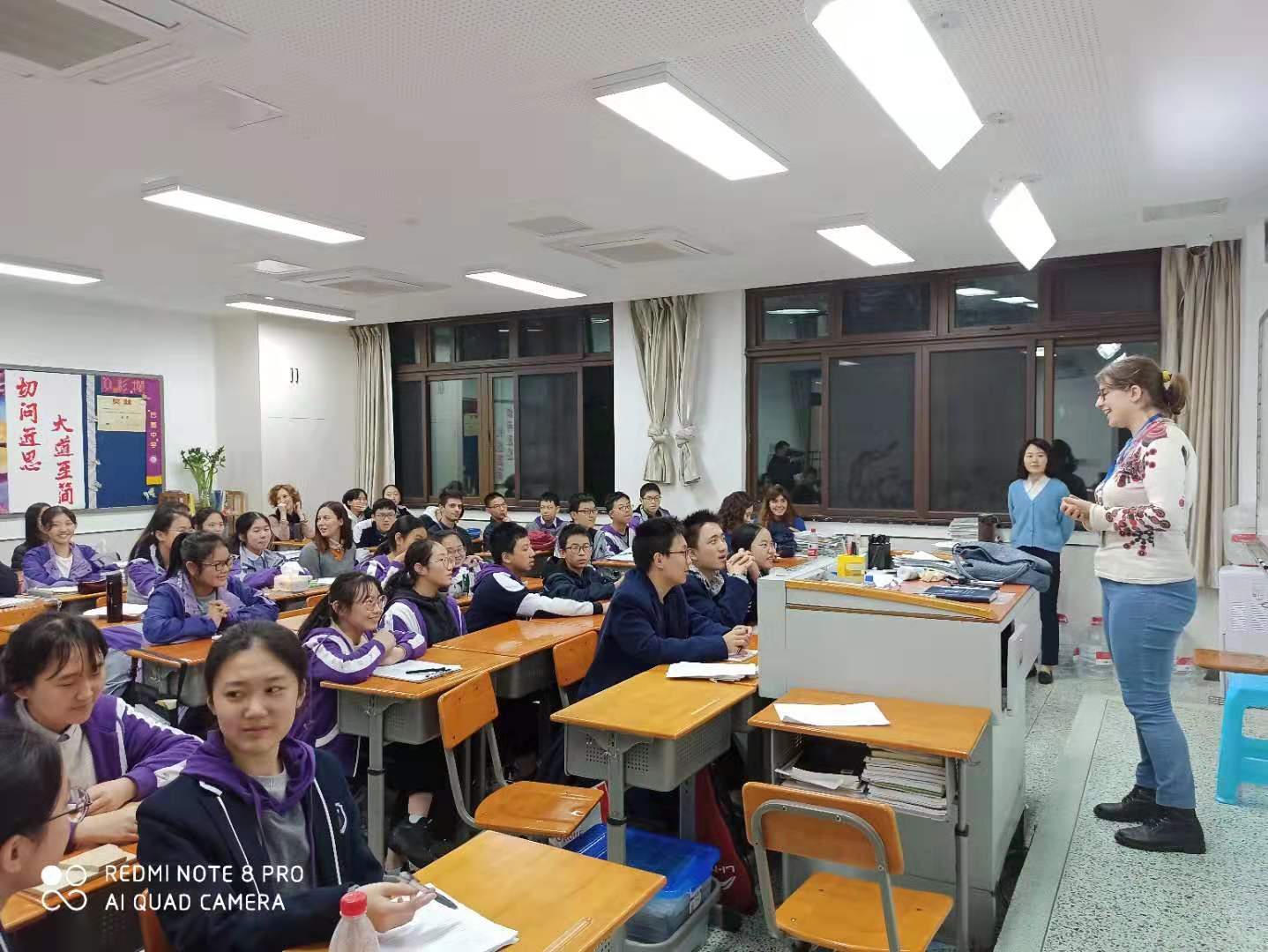
Chinese classes at Chongqing University
During the three weeks we spent in Chongqing, every morning we all attended a four-hour Chinese class, in order to improve our language skills. In class we did not only deepen our grammar knowledge, but most importantly we expanded our vocabulary: since the first lesson our teachers have made us memorize a lot of useful words for our daily life in Chongqing (for example to order food at the restaurant).
In order to strengthen what we had learned in the first half of the lesson, our teachers organized some pair or group works, and even some games. These activities helped our learning in two ways: firstly, by creating a more relaxed atmosphere, teachers managed to keep our attention even at the end of the class, when we were obviously more tired; secondly, interactivity allowed us to use the new knowledge personally, and consequently to memorize it better.
Even if we had different language levels (some of us had studied Mandarin for six months, whereas others had studied it for one year), we were all attending the same class, so it was a bit difficult for the teachers to help everyone in the way they needed. Nevertheless, all our language skills were challenged and improved during the course: writing, reading, listening and speaking.
Our two teachers had different methods, which resulted to be complementary and both equally useful for us. One teacher spoke almost only Mandarin, resulting in really difficult lessons at first; however, after we got used to it, her teaching method encouraged us to try to speak more and to understand as much as possible, as if we were in a daily-life situation. On the other hand, the second teacher spoke more English, making the lesson easier and allowing us to fully understand more difficult concepts (mostly about grammar structures), that would not have been accessible in Chinese due to our level.
In conclusion, we are very proud of our improvement in the Chinese language, particularly about recognizing and writing more characters and about speaking and pronunciation. The full-immersion experience in the Chinese daily life, strengthened by our Chinese classes, was absolutely helpful, and we are thankful to have had this extraordinary opportunity!
Academic and institutional visits
During our stay in Chongqing, we had the opportunity to meet a lot of interesting people, who have always been very willing to introduce us to their professional life in China. One of the most interesting visits took place at the Italian Consulate General in Chongqing. Not only were we explained the concrete importance Consulate’s activity: we also had the chance to meet Giuseppe Laganà, Press Officer of the Consulate, who gave us a clever insight into the world of Chinese journalism.
Moreover, we all had the opportunity to take part in meetings with people who studied the same subjects that we are studying now. For example, Alessandra, Giulia and Alice, the three medical students, had the opportunity to visit the Chongqing Emergency Medical Centre, which is the second most important hospital for emergency medicine in China. They also visited the Chongqing Traditional Chinese Medicine Hospital, so they could get in touch with this ancient form of medicine, which is not well-known and spread in Europe. Also Eleonora, as the only student in Plant Biotechnology, had the chance to visit the laboratories of Plant Biology and Biotechnology at the Chongqing University and also at the Southwest University, discovering more and more about which kind of agricultural and biotechnological researches are held in China.
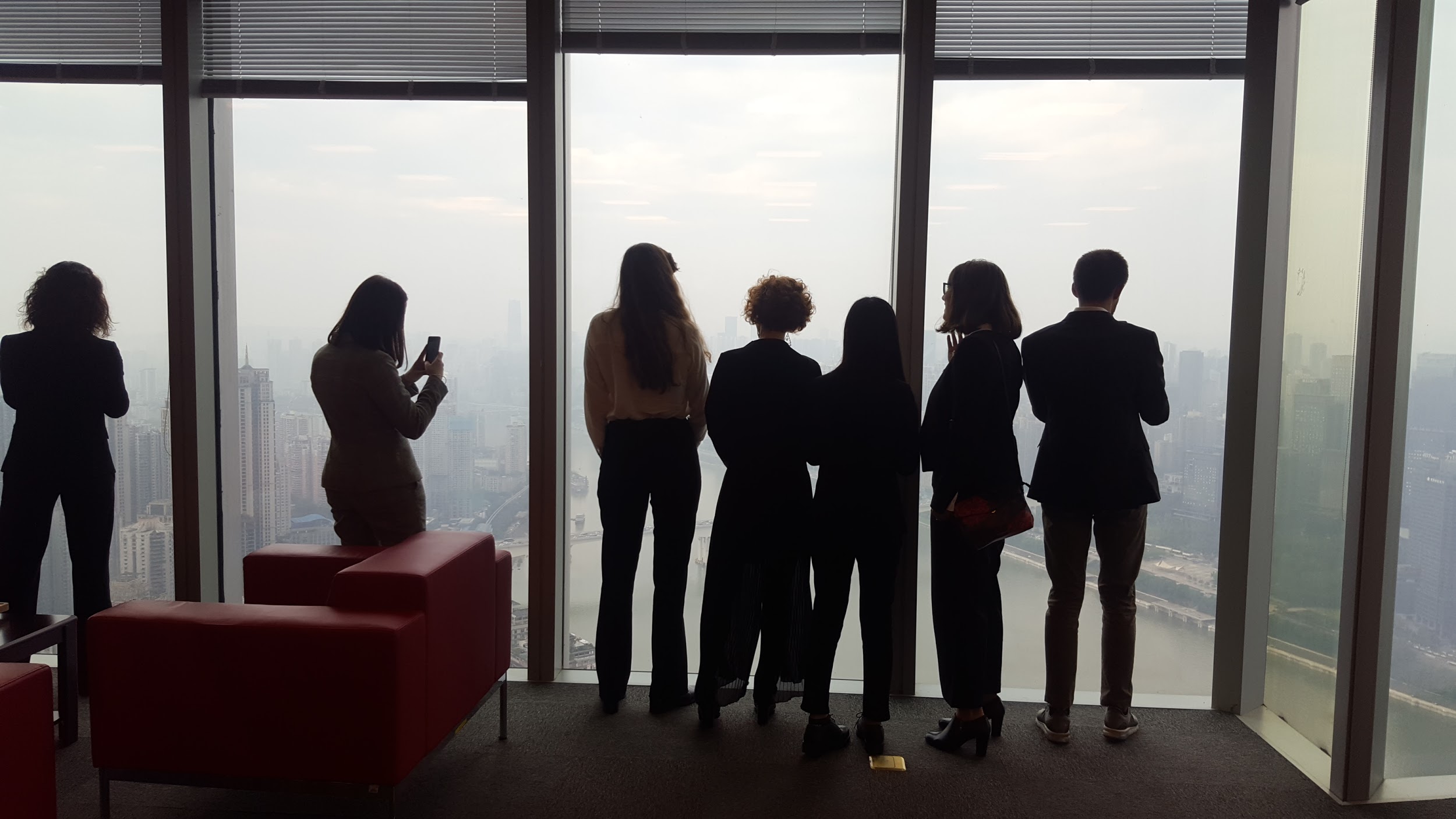
Tasting a different culture: “tài là le!”
A Chinese proverb says: “A Chinese person eats everything that walks, except for humans; everything that is in the sea, except for ships; and everything that flies except for airplanes”. This phrase well describes the huge variety of flavours the Chinese cuisine offers to those approaching it.
The three weeks we spent in Chongqing have been a continuous discovery of dishes and tastes, all cheaply available, but no less flavourful, in the small shops and restaurants that cover its hilly roads. Xiao mian, bao zi, jiao zi, chuanr delighted our meals, often accompanied by milk tea.
What was always present was chili and Sichuan pepper. We had a hard time to get accustomed to a numb mouth and struggled until our last day with spicy food.
How not to mention hotpot, the must-to-try Chongqingese dish. A soup as hot in temperature as it is in spiciness. It has been fun to choose the best ingredients to dip in the hot pot while having a good time with friends. 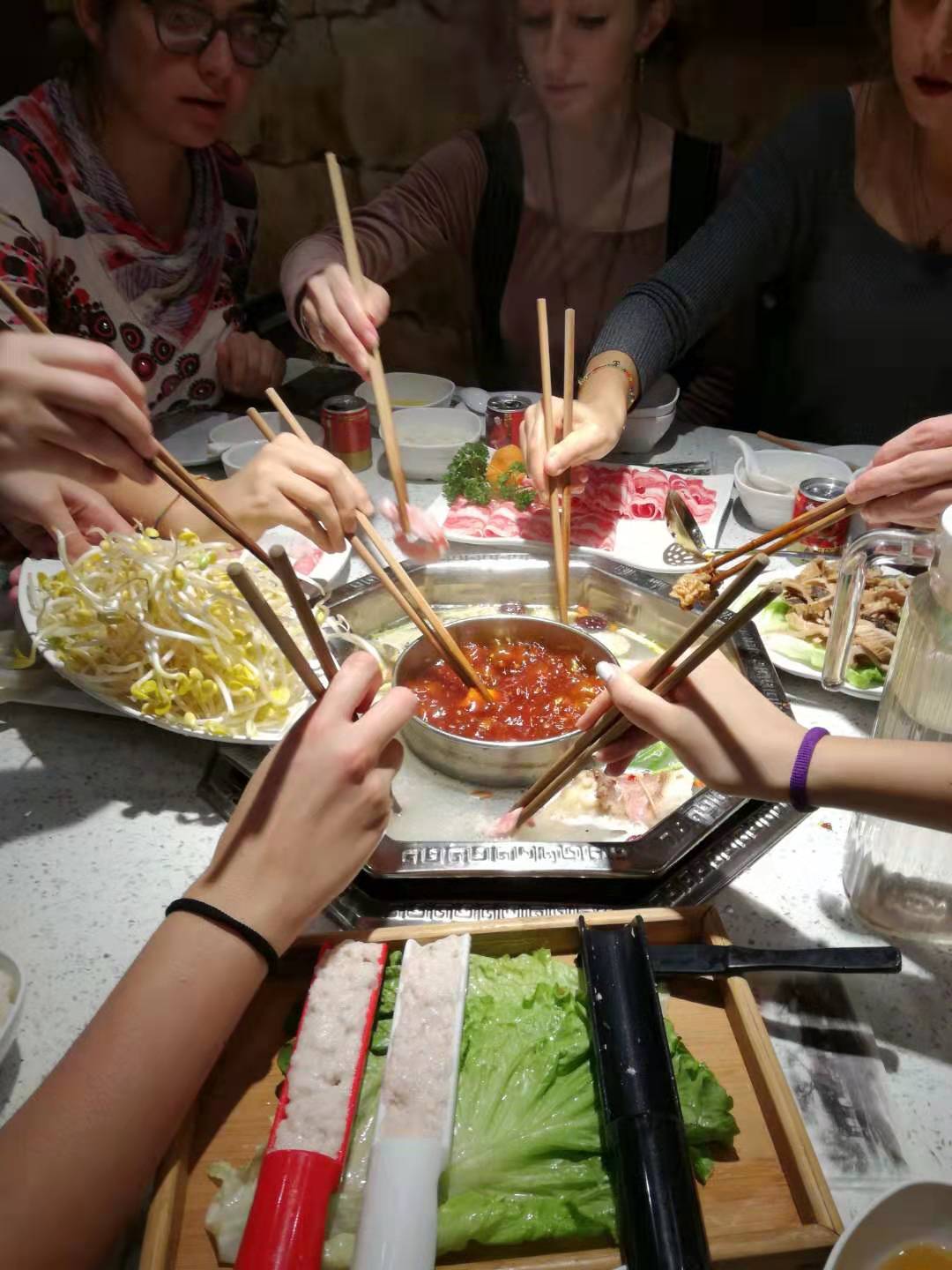
The city and the nature.
Our stay in Chongqing required us a whole change in perspective on many issues. As we walked down the streets, exploring the city near our hotel and near the university, as we looked down from a huge window at the 49th floor of a building and as we looked up to the sky, we couldn’t help feeling so small and little inside our heart: an entire and massive jungle of giant buildings and skyscrapers extended from every corner all around, leaving us both breathless and astonished.
In Italy, a scenario like the ones we discovered in Chongqing does not exist even in the biggest and most populated city. We were somehow ready to deal with huge differences from what we were used to, but what we found was over our imagination. That is why we felt scared and frightened at first: everything we saw was new, every space we encountered felt dilated and compressed at the same time. We didn’t know how we would deal with all those great changes for three weeks!
Yet, while we were exploring and trying to understand the biggest city in the world, we found something even new, and surprising: down the streets, around every corner, in bars, restaurants and squares, a roaring and omnipresent stream of life was surrounding us all fulfilling everything – every inhabitant and every very building of the city, leaving its trace of vivacity and energy behind.
In Chongqing we found nature. We visited some parks during our stay, but also inside all the university campuses nature was everywhere. We found so pleasing to see ponds, lakes and fields, along which students and all the civil community may relax and take a deep breath from worries and thoughts. Even along the squares and streets we could see rows of trees and beautiful flowerbeds. Of course, parks are the best places to admire nature and the ones in Chongqing are not different: places through which you can enjoy the sound of running water, the sight of marvellous stones and shapes.
It was a true pleasure and a real surprise to see how well the urban and natural components of the city get along. They create such a peculiar harmony, so suitable for a constantly changing city as Chongqing. Indeed, a city full of surprises and perspectives.
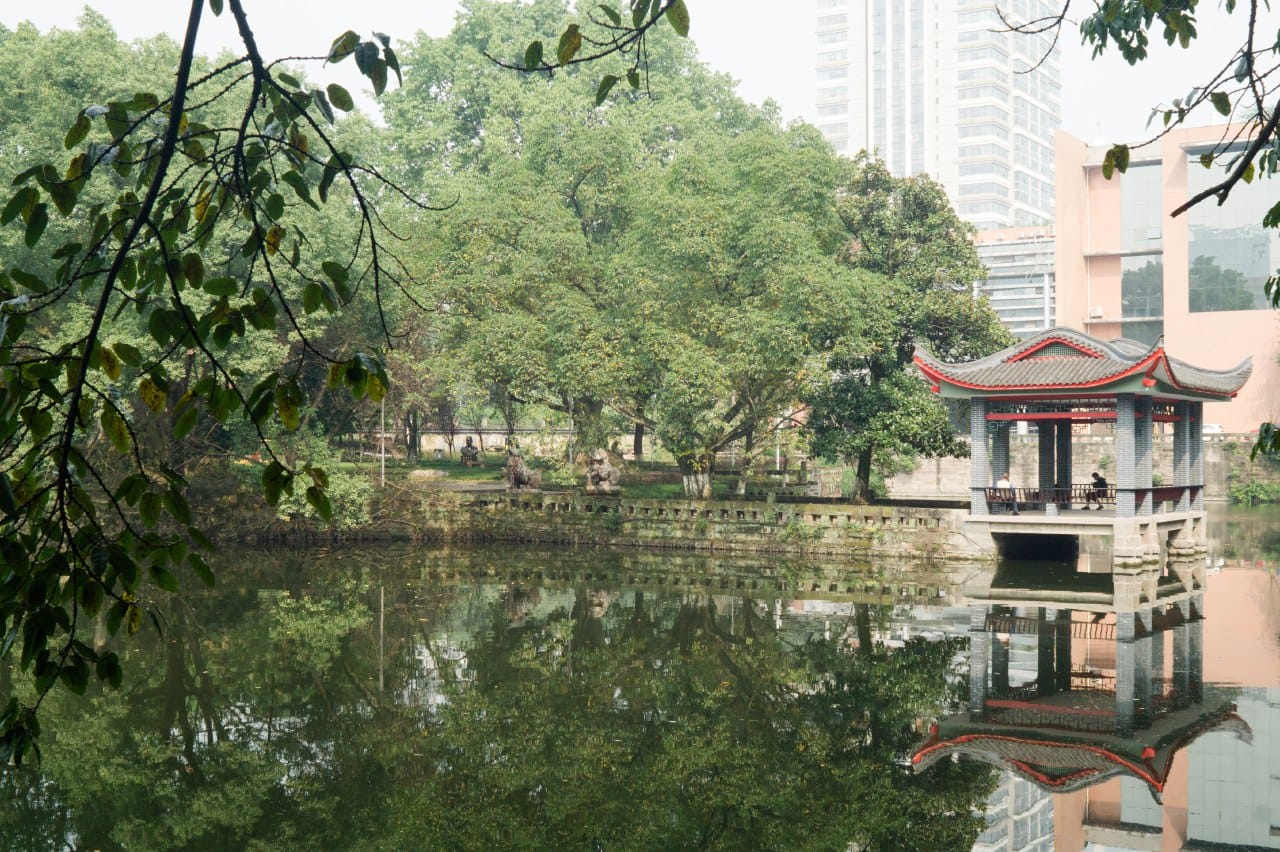
Trying to deepen Chinese world: relativity and openness.
One of the most important thing we have learnt during the four wonderful weeks we spent in China is that life is a semantic effort.
Before the beginning of our journey, we used to imagine that China would have seemed radically different from the world we have always lived in; we thought that we were going to meet new ways of thinking and living that most probably would have let us astonished. This feeling we had, however, proved to be extremely vague.
While travelling through Chongqing, Guilin, Longji, Yangshuo, Leshan and Chengdu we often felt deeply fascinated, and tried to understand what that feeling of charm was due to. Was it inspired by the sight of such various and surprising landscapes? Or was it a consequence of hearing voices and looking at people that we could never have imagined before truly being there?
This question probably needed some time and a great amount of self-reflection to be dealt with. It has been more than one month since we have reset my life among our habitual environments, and now we think that the reason why we felt that way during our travel experience is that we was trying to live according to “alphabets” that are completely different from what we are used to.
Our fascination came from the gap between the strong desire to understand and the great difficulty to achieve a complete awareness and comprehension of the world around us. Every word, every gesture, every view urgently called for an interpretation that we were not ready to find in our mind and memory.
Only after the first weeks, we began to understand that being introduced to the world of China means getting ready to set apart one’s usual ways of perceiving and judging reality. Once you understand the unavoidable necessity of that “renouncement and openness act”, you are more prepared to face the intense contrasts by which be beauties of China offer themselves to strangers.
You walk through the lightful streets of Yangshuo; few days later you enter a silent, peaceful and apparently intact temple. You see first-hand how quick and chaotic life in an enormous city can be; at the same time, you discover trees, children laughing and women dancing among those crowded streets. You experiment the difficulty of getting close to people that do not understand your language at all; then you discover various and surprising ways of bypassing that communication barrier and you feel astonished for the feelings of empathy you live one each other.
Such contrasts are extremely challenging to deal with, and therefore what is seen and lived becomes breathtaking.
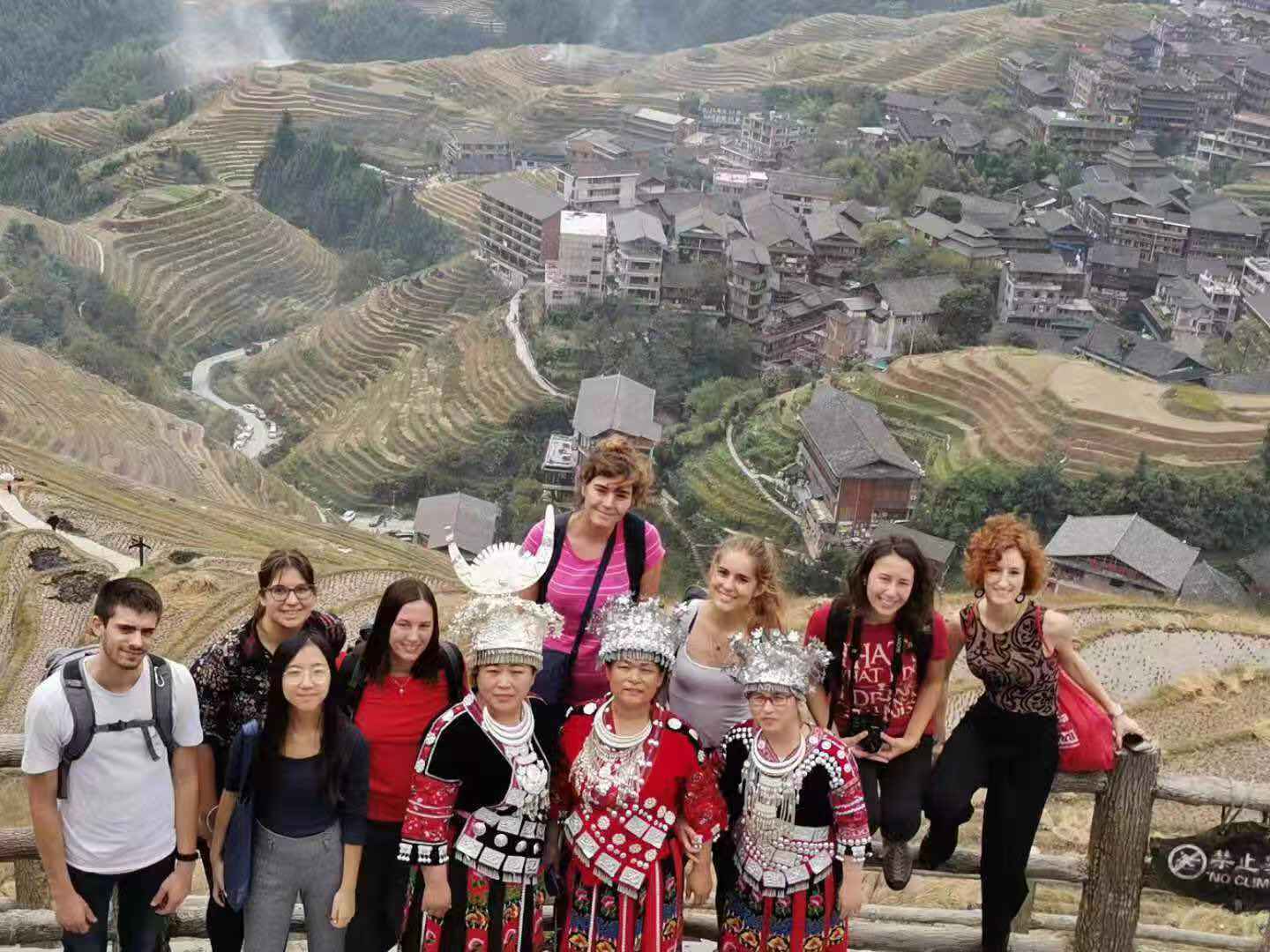
All in all…
… we are all so grateful for the amazing experience we had during the four, unforgettable weeks we spent in China. Each moment gave us the opportunity to really get in touch with Chinese culture and life.
Let’s resume our incredible experience: for a couple of weeks, our everyday life was the Chongqing students’ life – we took the underground, we walked into the streets, we had classes at the campus, we went into shops and tried typical food. We really enjoyed talking with people, even though our Chinese was not good at all. They always looked so willing of communicate with us and they tried their best to help us explaining ourselves and understanding them.
In the afternoons, we met interesting people who told us something more about our field of study and research, giving us different perspectives about it. Moreover, they often succeeded in giving us better eyes to – critically – appreciate Chinese culture and habits.
During those weeks, we entered a completely new world, a huge part of which has flown back to Italy with us. Chinese people have taught us the faith in the future, which completely lacks to our generation in the Western World. May it be due to an opposite economic situation or to a diverse way of approaching life, it is something very precious. We need to believe that we can make tomorrow’s Earth a better place to live in.
We hope we can come back to China soon. It is a wonderful country and we would like to widely explore its cities as well as its nature’s beauties.
